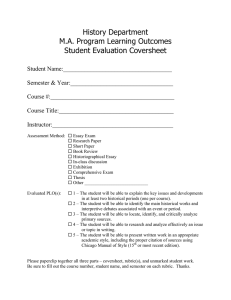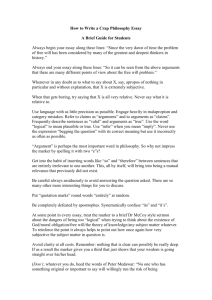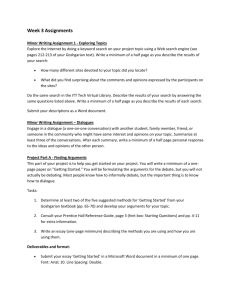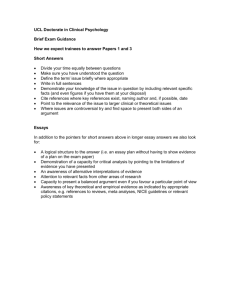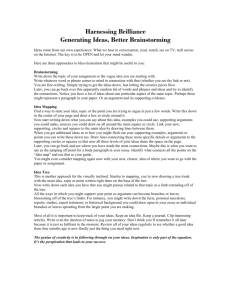DEPARTMENT OF HISTORY NON-ASSESSED ESSAY COVERSHEET
advertisement
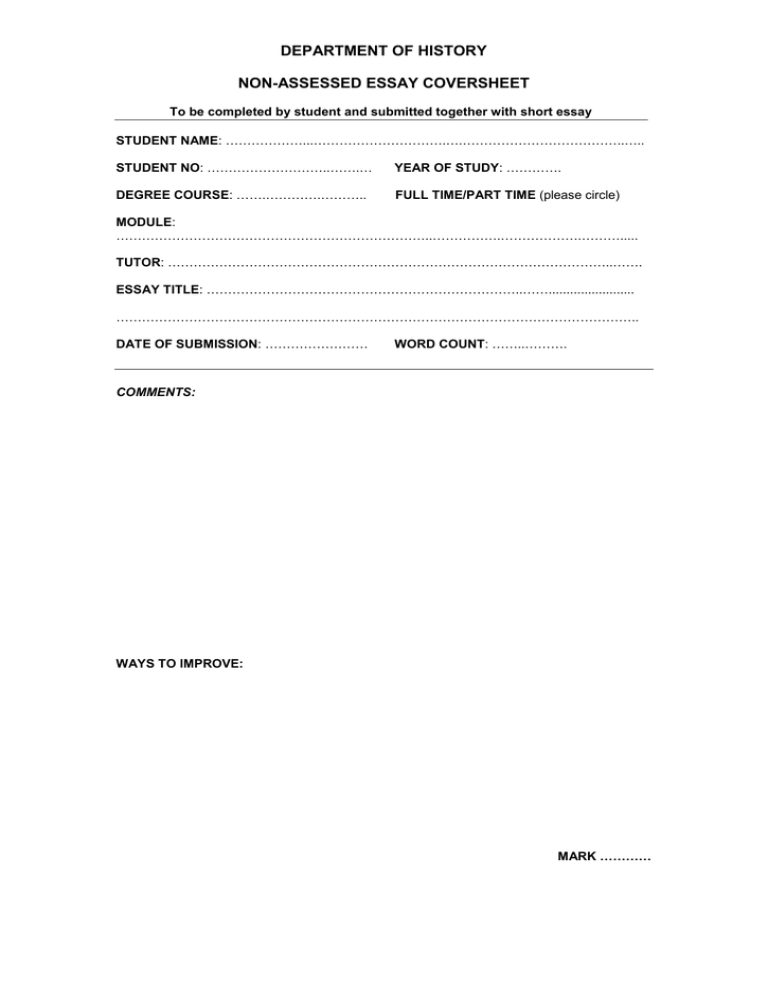
DEPARTMENT OF HISTORY NON-ASSESSED ESSAY COVERSHEET To be completed by student and submitted together with short essay STUDENT NAME: ………………...………………………….….………………………………..….. STUDENT NO: ………………………..…….… YEAR OF STUDY: …………. DEGREE COURSE: …….………….……….. FULL TIME/PART TIME (please circle) MODULE: ………………………………………………………………..…………….……………….………..... TUTOR: …………………………………………………………………………………………..……. ESSAY TITLE: ………………………………………………………………..……........................ ………………………………………………………………………………………………………….. DATE OF SUBMISSION: …………………… WORD COUNT: ……..………. COMMENTS: WAYS TO IMPROVE: MARK ………… DEPARTMENT OF HISTORY NON-ASSESSED ESSAY COVERSHEET Marking Criteria First Class (70+) 1. Persuasive and direct answer to the question, establishing the wider significance of the issues concerned. 2. Comprehensive coverage of the relevant material; accuracy in the details. 3. A direct and coherent argument, well supported by relevant evidence. 4. Critical analysis of relevant concepts, theoretical or historiographical perspectives or methodological issues. 5. Fluent and engaging writing style; persuasive presentation and structuring of arguments. 6. Work which, in addition, displays evidence of creativity, originality, sophistication and freshness of arguments will be awarded marks of 75+ Upper Second (60 – 69) 1. Direct answer to the question, establishing the wider significance of the issues concerned. 2. Adequate coverage of the relevant material, accuracy in the details. 3. Skilful mobilisation of evidence in relation to the argument being presented. 4. Narrative and description taking second place to analysis. 5. Competent manipulation of relevant concepts, theoretical or historiographical perspectives or methodological issues. 6. Fluent writing style; effective presentation and structuring of arguments. Lower Second (50-59) 1. Basically satisfactory answer to the question. 2. Limited coverage of relevant material; some inaccuracy in the detail. 3. Some attempt to mobilise evidence in relation to the argument being presented. 4. Analysis taking second place to narrative and description. 5. Limited understanding of relevant concepts, theoretical or historiographical perspectives or methodological issues. 6. Adequate writing style, presentation and structuring of arguments. Third (40–49) 1. Barely satisfactory answer to the question. 2. Inadequate coverage of relevant material; major inaccuracies in the detail. 3. No understanding of relevant concepts, theoretical or historiographical perspectives or methodological issues. 4. Poor presentation and structuring of arguments. Fail (less than 40) One or more of the following: Serious misunderstanding of the question Failure to provide any answer to the question Failure to show knowledge of relevant material Seriously muddled presentation and structuring of arguments

